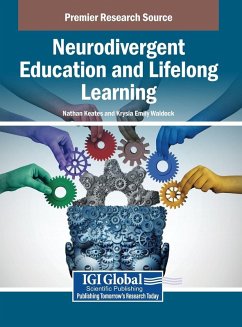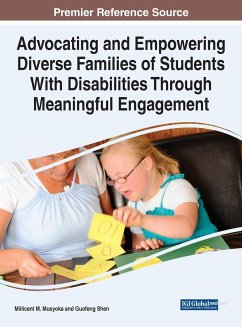
Applications and Practices for Empowering Neurodivergent Learners
Versandkostenfrei!
Versandfertig in 1-2 Wochen
163,99 €
inkl. MwSt.

PAYBACK Punkte
82 °P sammeln!
Empowering neurodivergent learners requires a shift from standardized education toward inclusive practices that recognize and support diversity. Effective applications and practices offer multiple means of engagement, representation, and expression to accommodate varying learning styles. Assistive technologies play a key role in enhancing access and participation. Personalized learning plans, sensory-friendly environments, and trauma-informed teaching strategies create supportive spaces where neurodivergent individuals can thrive. These practices also foster self-advocacy, encourage autonomy, ...
Empowering neurodivergent learners requires a shift from standardized education toward inclusive practices that recognize and support diversity. Effective applications and practices offer multiple means of engagement, representation, and expression to accommodate varying learning styles. Assistive technologies play a key role in enhancing access and participation. Personalized learning plans, sensory-friendly environments, and trauma-informed teaching strategies create supportive spaces where neurodivergent individuals can thrive. These practices also foster self-advocacy, encourage autonomy, and involve learners in decisions about their education. By prioritizing flexibility, empathy, and collaboration, educators and institutions can create pathways that accommodate neurodivergence. Applications and Practices for Empowering Neurodivergent Learners explores the integration of inclusive learning strategies to accommodate neurodivergent learners in education. It examines applications and practices for effective learning, accessibility, and personalized education. This book covers topics such as digital technology, personalized learning, and pedagogy, and is a useful resource for educators, sociologists, academicians, researchers, and scientists.












